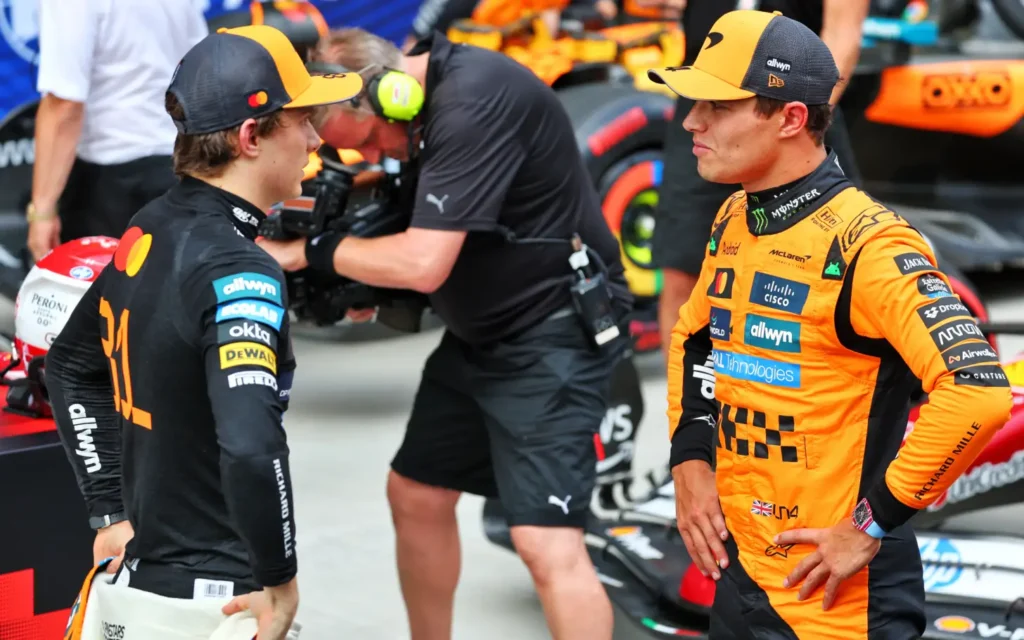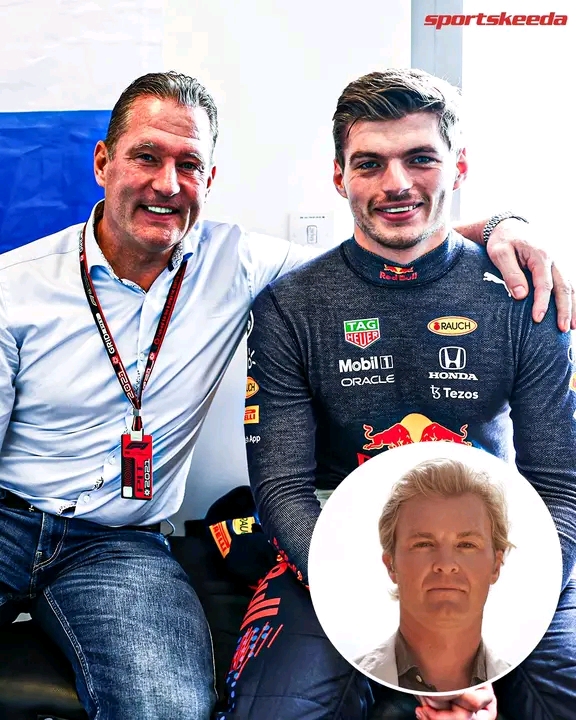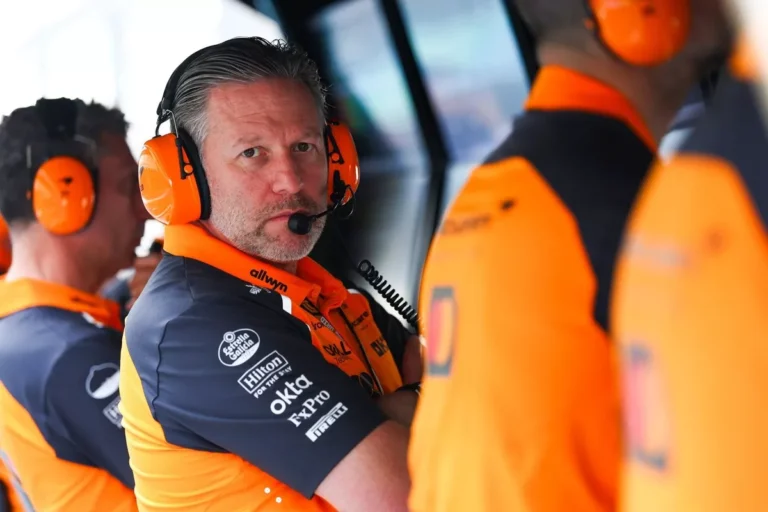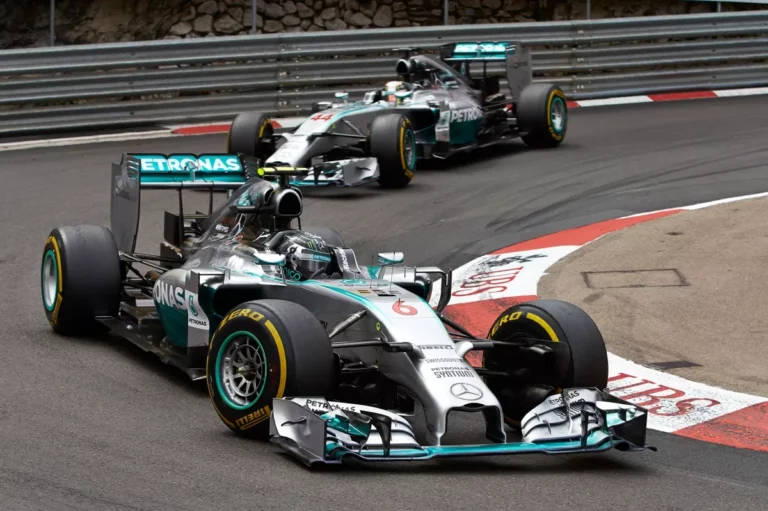
McLaren Drivers Compared to F1 Legends Amid Intra-Team Tensions
Oscar Piastri and Lando Norris are currently entangled in a fiercely contested internal rivalry within McLaren, a situation that has compelled both drivers to push beyond conventional boundaries in their pursuit of supremacy. Unlike the harmonious dynamics enjoyed by Max Verstappen and Michael Schumacher during their prime, the McLaren pair face unrelenting internal competition, forcing each to operate at the edge of performance. This relentless intra-team battle, according to Ralf Schumacher, contrasts sharply with the dominance of his brother Michael and Verstappen, whose respective teammates offered little resistance.
Ralf Schumacher, speaking on the Backstage Boxengasse podcast, highlighted the considerable pressure Piastri and Norris face, which he believes necessitates a more forgiving environment that allows for occasional missteps. He cited the incident in Canada, where Norris collided with Piastri while battling for fourth place—a critical mistake that cost Norris a potential lead in the driver standings. Such errors, Schumacher argued, are symptomatic not of recklessness but of a high-stakes internal battle where both drivers are desperate to assert themselves as McLaren’s principal contender.
The situation has escalated further, with recent close calls in Austria and Hungary almost resulting in catastrophic collisions between the pair. These moments, characterized by aggressive braking and late maneuvers, underline the ferocity of their duel. Schumacher posits that these aren’t mere lapses but calculated risks born out of a need to outperform one another within the same team. The intense rivalry, while thrilling for spectators, amplifies the margin for error—a stark contrast to Verstappen’s unchallenged reign at Red Bull and Michael Schumacher’s clear number-one status during his Ferrari years.
Schumacher elaborated that the ease with which Verstappen and Michael Schumacher executed their dominance was due in part to the subservient roles of their teammates—Sergio Perez and Rubens Barrichello, respectively—who offered minimal intra-team resistance. This internal stability allowed the champions to focus entirely on the broader championship battle without the distraction of internal politics or wheel-to-wheel conflicts. In contrast, Piastri and Norris must exert themselves fully each race weekend, not only to gain points but to affirm their standing within McLaren’s development strategy.
Ultimately, the scrutiny surrounding Piastri and Norris reveals the brutal nature of modern Formula 1 team dynamics. As internal hierarchies remain fluid, the pursuit of team leadership has become as intense as the championship battle itself. Ralf Schumacher emphasized that once a driver secures their spot, as Charles Leclerc seemingly has, the psychological need to overreach diminishes. Until either Piastri or Norris achieves that clarity, however, the “extremes” they resort to will likely persist—defining McLaren’s trajectory as much as the championship standings themselves.



